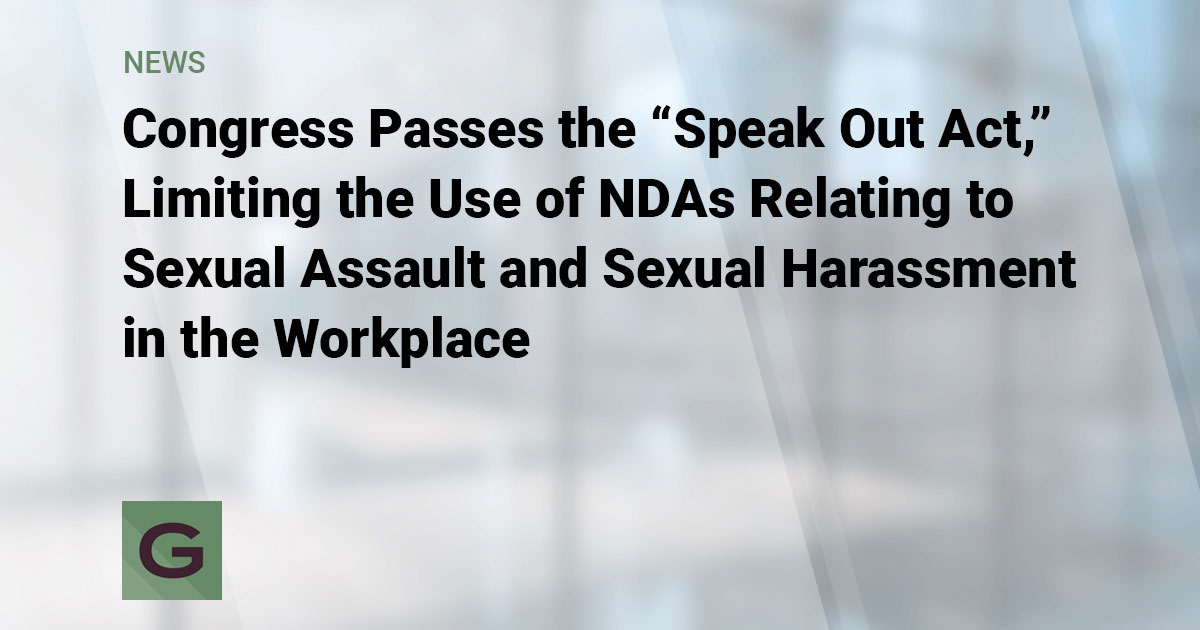On November 16, 2022, The U.S. House of Representatives passed the “Speak Out Act”, which renders unenforceable “pre-dispute” nondisclosure (NDA) and non-disparagement clauses in employment and employment-related agreements that require employees not to disclose, discuss, report or comment upon matters relating to sexual harassment or sexual assault where such misconduct would violate federal, state or Tribal law. The Act, which President Biden is expected to sign into law, comes on the heels of earlier legislation (the “Ending Forced Arbitration of Sexual Assault and Sexual Harassment Act”), which renders unenforceable pre-dispute provisions in employment agreements that would require employees to arbitrate claims relating to sexual harassment and sexual assault.
The Speak Out Act applies to current, former and prospective employees, and independent contractors.
The term “pre-dispute” will likely result in litigation as to when a dispute arises. It is unclear if a dispute would be deemed to “arise” when an employee alludes to misconduct in discussions with a supervisor or complains to Human Resources prior to filing a charge of discrimination with a regulatory agency (such as the EEOC or a state department of human rights) or a complaint in court.
The Act is not intended to prohibit, and will not have any effect on, confidentiality and nondisclosure provisions relating to trade secrets or other proprietary information. Nor will it prohibit NDAs in settlement or separation agreements that preclude employees (or former employees) from discussing facts or circumstances concerning workplace sexual harassment and sexual assault, although several states have passed laws that declare such provisions to be unenforceable unless specifically requested by the employee. These laws do make clear, however, that certain types of NDAs involving sexual harassment and assault are now considered to be against public policy. The Act does not apply to other forms of employment discrimination, such as those involving race, age, ethnicity, sexual orientation or disability, and it remains to be seen whether Congress and the states will extend similar protections to the targets of other forms of workplace discrimination.
We encourage our clients to review their employment agreements, employment applications and separation agreements to determine whether they contain provisions that may be impacted by the Speak Out Act. Our employment attorneys would be pleased to assist you.
